I’ve learned the hard way that you can’t always trust a rainbow flag. Just because a hotel posts is located in a queer-friendly city or posts Pride content on their social media doesn’t guarantee you’ll truly be welcome. Most recently, in Honolulu—which was one of the most queer-friendly places I’ve ever visited—I still got the dreaded question at check-in: “One bed or two?” It was a small moment, but it shook me, because I’d been expecting a warmer welcome.
Checking into a hotel is one of the first interactions LGBTQ+ travelers have in a city. And when the interaction leaves you feeling unseen or shaken, it sets a negative tone that can influence your trip.
A destination’s reputation for being LGBTQ-friendly influences travel planning for 90 percent of gay and lesbian travelers, according to LGBTQ market research firm Community Marketing & Insights. And many of these travelers are looking past the social posts for verifiable proof that hotels value LGBTQ+ guests for more than our pink dollars.
Enter LGBTQ-friendly accreditations, a third-party stamp of approval that lets you – has done the work.
TLDR – the easiest way to see if any hotel is LGBTQ friendly is to check whether they have an LGBTQ-friendly accreditation. This trick also works with other travel businesses, including airlines and tour companies.
Keep reading to learn how accreditation programs work, what they measure, and which ones are the most meaningful to me.
What LGBTQ+ Travel Accreditation Really Means
LGBTQ accreditation is basically a stamp of approval showing that a hotel or business isn’t just saying they welcome gay and lesbian travelers. They’ve done the work, with staff training, inclusive policies, and community support.
Accreditation requires a review process, which means an inclusion expert is digging into the hotel’s policies.
They are verifying authenticity over optics or pink washing.
And they’re connecting staff members with the inclusive training, resources and support they need to make sure that gay travelers feel welcome throughout their stay.
Not a lot of hotels worldwide have LGTBQ accreditation.
For one of the most trusted certifications, Accredited by the International LGBTQ+ Travel Association or IGLTA, there are just 33 hotels worldwide.
And only one of those is in the US.
While higher numbers give us more choices, exclusivity is part of what makes LGBTQ accreditation meaningful: each hotel on the list has earned its place.
IGLTA’s accreditation is a quick one-stop to check for LGBTQ-friendliness.
But there are many more accreditation programs to know. Keep reading to see which ones I recommend and use personally!
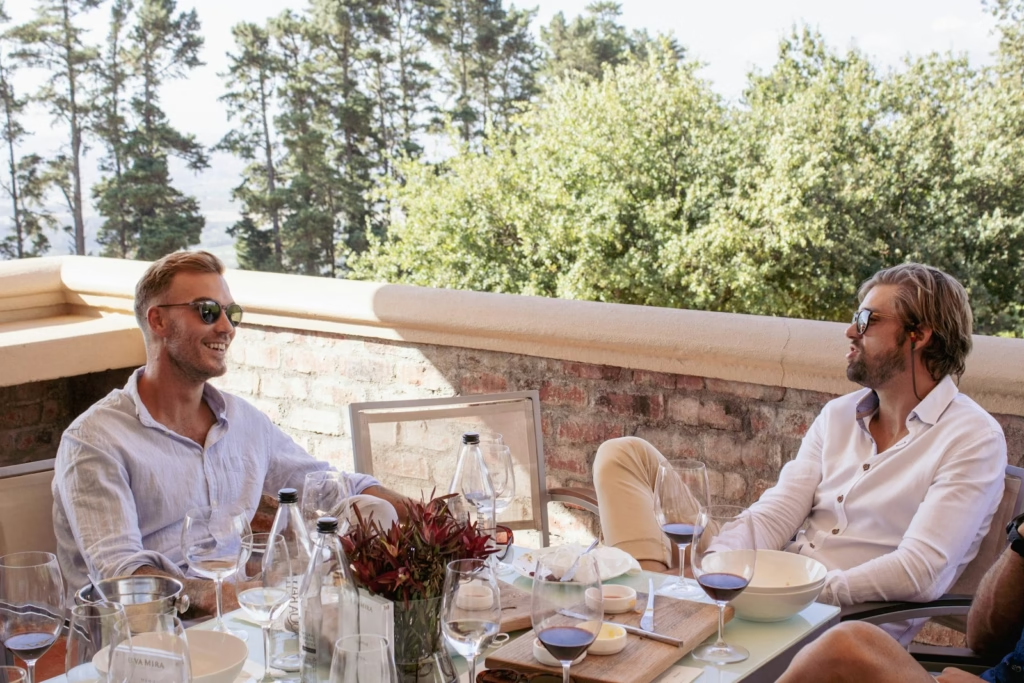
IGLTA Accredited
Accredited is IGLTA’s LGBTQIA accreditation program. It covers boutique hotels, resorts, guesthouses, and other accommodations around the world.
IGLTA’s LGBTQ Friendly Accreditation criteria:
Unlike other accreditation programs on this list, IGLTA Accredited does not provide inclusivity training.
That’s right. They provide no education whatsoever on how to be LGBTQ inclusive.
Instead, they do an 8-point audit to verify that the property is inclusive in all the ways that count.
Specifically, the audit checks for inclusive best practices like:
- Having a non-discrimination customer charter or policy posted to the website with a publicly available link.
- Providing proof of employee non-discrimination policies that cover sexual orientation and gender identity, even in countries where sexual orientation is criminalized.
- Having one staff member designated an “LGBTQ+ champion” who will serve as the point person if an LGBTQ+ guest experiences an issue during their stay
- Using LGBTQ-inclusive marketing materials.
- Giving back to the local LGBTQ+ community
I appreciate that the audit criteria respect different cultural contexts. It doesn’t mandate that hotels in countries where it’s illegal to be gay have the same standards as hotels in queer-friendly countries.
But in both cases, the program outlines clear and actionable ways for accredited hotels to not just serve queer tourists, but support the local LGBTQ+ community through donations or by offering jobs to LGBTQ+ people.
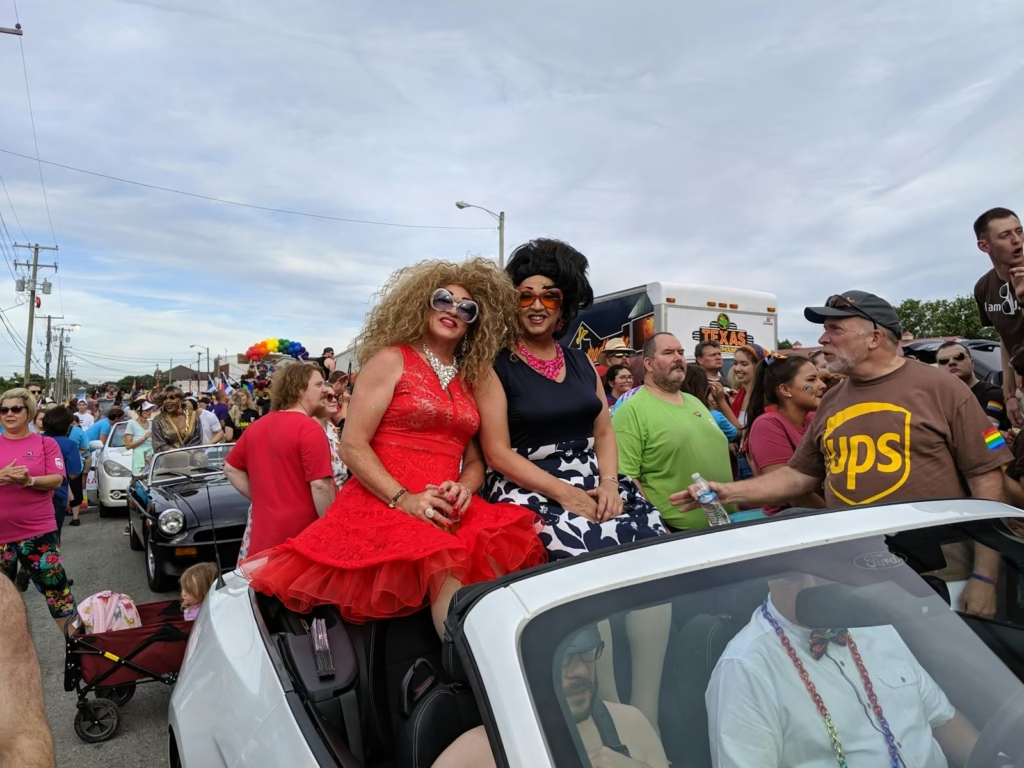
IGLTA Accredited members have to pay $299 each year. That’s on top of a one-time administration fee to cover the application process.
I have to wonder if the fee keeps some smaller properties that are doing the work, but don’t want to spend the cash to prove it, from applying to be IGLTA Accredited
End benefit for LGBTQ travelers:
IGLTA’s website lets you browse accredited properties based on region. There’s also a filter for the kind of accommodation — guesthouse, resort, luxury hotel, boutique hotel, et cetera.
The program is fairly small right now.
There are only two inclusive hotels in North America, one in New York and one in Vancouver.
The UK has eight.
While IGLTA Accreditation only lasts for one year, I actually think that’s a plus for travelers. If you see a hotel is IGLTA Accredited, then you know they’re a safe and welcoming place to stay right now.
That’s especially important if you’re going somewhere like India or Turkey, where LGBTQ+ rights are less protected than in North America or Europe.
I haven’t used IGLTA Accredited yet, due to the small number of destinations that are represented. But I can see myself using it in the future, even if it’s just a quick check to see if where I’m going has a property on their list.
Worth mentioning: IGLTA also has a membership program that any hotel can join for a fee. So if you’re browsing their site, make sure you check whether the hotel has an IGLTA Accredited badge that’s rainbow-colored, or a metallic-hued membership badge.
Membership in IGLTA is a strong sign of their commitment to inclusivity, but it doesn’t carry the same badge of approval as the Accreditation program.
TAG Approved
TAG Approved was the original LGBTQ-friendly hotel certification program, founded in 1998. It’s also one of the largest, with over 500 hotel members.
Since TAG (Travel Advocacy Group) has been incorporated into IGLTA, their accreditation program is changing. TAG Approved isn’t accepting new members. Existing members can still renew their membership.
Since you might still see hotels touting their TAG Approved credentials, let’s unpack what membership means.
TAG certification criteria:
TAG Approved properties have to show they meet six LGBTQ-welcoming best practices, including:
- DEI training for staff
- Publicly accessible guest non-discrimination policy
- Supporting LGBTQ+ nonprofits and organizations
As with IGLTA Accredited, TAG Approved properties must get recertified annually. However, since the program is no longer independently running, a better option is for inclusive hotels to pick a current LGBTQ-friendly accreditation program.
End benefit for LGBTQ travelers:
TAG Approved seemed like a great consumer option, with the largest number of LGBTQ+ friendly hotels to choose from.
Unfortunately, there’s no longer a directory for TAG Approved properties.
So while you might come across the designation in your search for LGBTQ friendly places to stay, it’s not a discoverable resource any longer.
I’m curious to see how IGLTA incorporates TAG Approved properties into their LGBTQ travel resources. Will they encourage TAG members to join IGLTA Accredited instead? Or will they continue to maintain the separate program—and if so, why, given that there is no longer a consumer-facing portal for TAG Approved members?
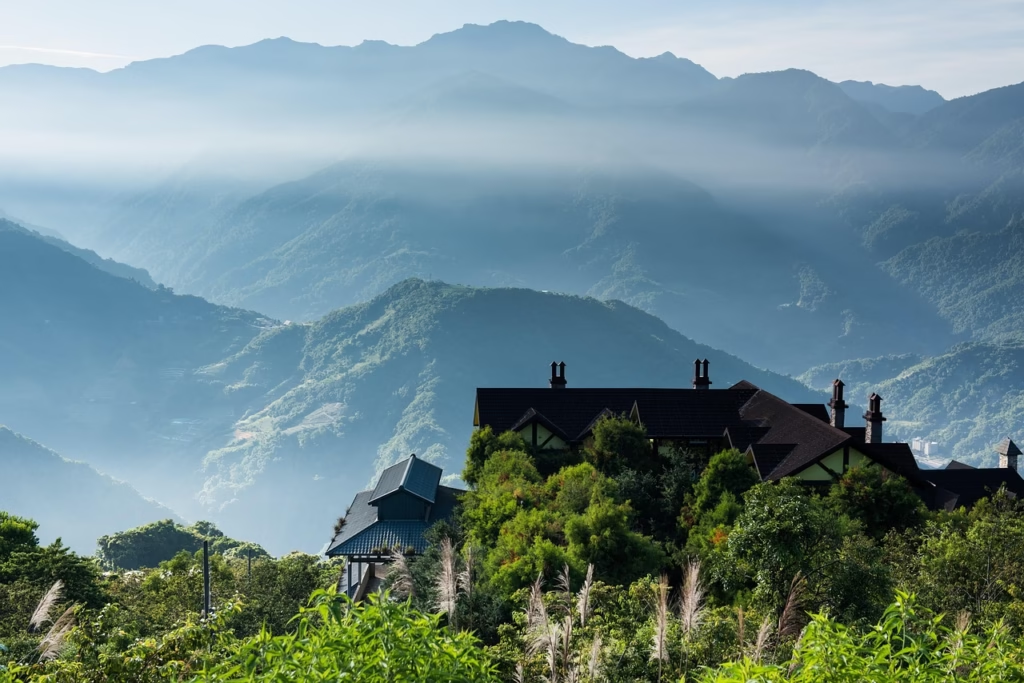
Booking.com’s Travel Proud
Travel Proud is Booking.com’s LGBTQ-friendly certification process. The program covers any type of accommodation that can be booked using Booking.com. So not just hotels, but also vacation rentals and bed and breakfasts and vacation rentals.
LGBTQ Accreditation Criteria:
To become Travel Proud certified, property owners must first take a 75-minute online class about the queer travel experience, focusing on the most frequent barriers LGBTQ+ travelers experience.
Proud certified accommodations must also select a property representative who takes ownership of the initiative on-premises. That means a dedicated point person who makes sure the entire team is committed to inclusive service.
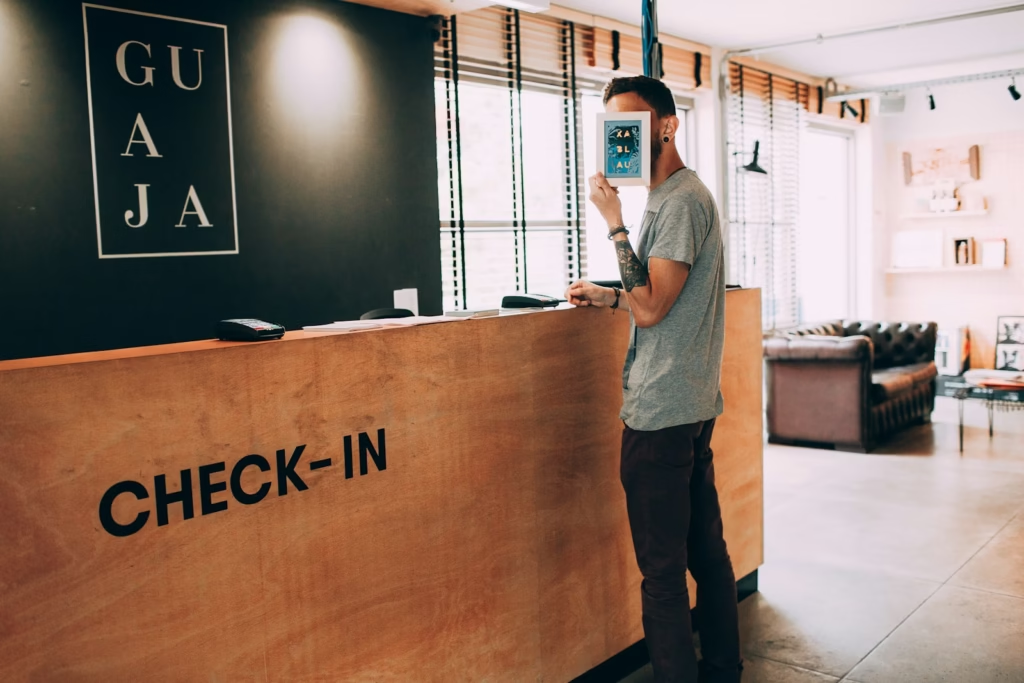
End benefit for LGBTQ travelers:
Booking.com is a very popular travel booking program. In fact, I frequently use it to book accommodations and even rental cars.
Having the ability to check whether a hotel is LGBTQ-friendly without leaving the site to do independent research is a huge time-saver.
Or at least it would be, if Travel Proud certification were included as a filter within Booking.com’ search engine. Unfortunately, it’s not.
A Booking.com representative told me that, for now, the best way to discover Travel Proud listings is to browse the handful of destination pages they’ve put together. Like this Sydney page.
If you aren’t heading to one of their LGBTQ-friendly cities—which, let’s face it, are the kinds of cities where you don’t need a queer-friendly hotel, because the whole vibe is inclusive—you’re limited to organic discovery.
In other words, clicking through random listings that have good reviews or fit your price point until you find the “Travel Proud” badge buried in the fine print.
Don’t get me wrong: I appreciate the Travel Proud program. But to truly be useful for queer travelers, it needs to be discoverable. To me, that means a dedicated filter so I can see only properties that are Proud certified.
I hope Booking.com improves the usefulness of this program in the future. If I hear any news from them, I’ll be sure to update this post!
QueerVadis
Queervadis is an international DEI and LGBTQ+ travel certification program. It’s designed for hotels, tour operators, restaurants, entertainment, and other hospitality organizations and associations.
Queervadis certification focuses on gender equality and LGBTQ+ inclusion specifically.
There’s a customer-service focused angle to their program as well as a workforce and employee support angle. Let’s take a deeper look at the certification process and what it means if you see a QueerVadis logo on a hotel website.
QueerVadis is a European program. While LGBTQ-friendly businesses anywhere in the world can apply, you’ll see higher numbers of European participants.

The certification process:
To become QueerVadis certified, LGBTQ friendly hotels must complete an assessment of their current social inclusion practices. This is a free online quiz that any business can take to gauge their efforts.
Companies that score highly on the quiz can proceed with getting certified. Those that don’t need extra help to get DEI practices up to speed.
After the initial assessment, there’s an education program that includes DEI training for staff, diversity management, better handling of customer complaints, and LGBTQ+ sales and marketing.
Hotels then need to develop an internal handbook for procedures and share this with staff and guests. There’s also an evidence-gathering phase where the hotel must provide certifiable evidence that they’re acting in alignment with inclusive best practices, including LGBTQ-friendly policies. Long story short, they have to prove that they’re a safe and supportive place for LGBTQ+ employees and welcoming to queer travelers.
Once all the proof is submitted, there’s a third party audit through RINA, their certification partner. Companies must be recertified every three years.
There are three separate levels of certification based on the company’s commitment to LGBTQ+ inclusion, and the levels don’t work the way you’d expect.
It’s not a good-better-best kind of ranking.
The different levels actually have different meanings.
Silver is for a basic level of DEI commitment.
Gold is specifically for LGBTQ+ based marketing efforts.
Platinum shows advocacy for LGBTQ+ travel organizations and associations.
End benefit for LGBTQ travelers:
While their focus area is LGBTQ+ travel, businesses have to be inclusive of any kind of diversity to earn QueerVadis accreditation.
So if you’re looking for a hotel that can be respectful of an interracial family or sensitive to the needs of neurodivergent guests – one where you won’t face awkward questions or assumptions at check-in – I’d recommend checking their lists first.
On the QueerVadis website, you can search for all QueerVadis Approved companies, from accommodation providers to restaurants. Use their search tool to assemble a full itinerary for your next gay vacation, knowing ahead of time that everything on the list is not merely safe, but supportive!
Since certifications last for a three-year period, the information in the database is fairly up to date. That adds reliability and peace of mind.
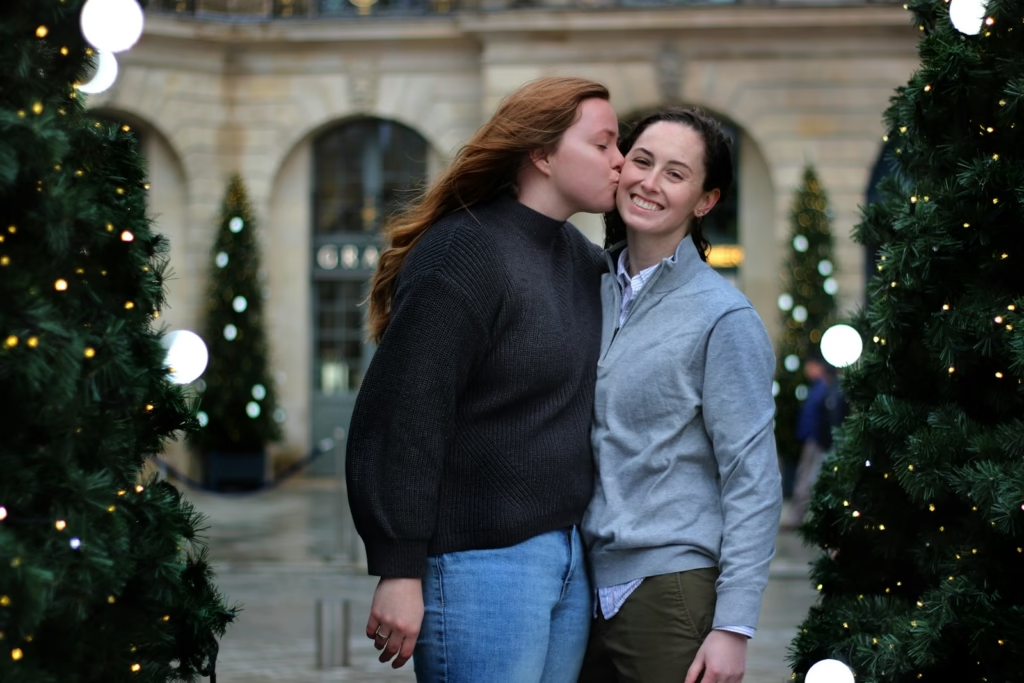
Queer Destinations Committed
Queer Destinations offers the Queer Destinations Committed certification for international hotel chains, destinations, restaurants, museums, car rental companies and much more.
Queer Destinations has a strong presence in Spanish speaking countries, so if you’re visiting Mexico, Spain, or Latin America, check them out!
LGBTQ Friendly certification process:
Queer Destinations LGBTQ friendly certification program starts with education.
Theirs is broken down into 50 modules covering 6 core aspects of the LGBTQ travel experience. Called “Hospitality Meets Diversity,” their program blends statistics and data points with case studies and real-life stories. The emphasis is on LGBTQ history, LGBTQ travel safety, inclusive hospitality, and what LGBTQ travelers need and want.
While hospitality is a major part of the LGBTQ accreditation program, course modules also cover management, human resources, operations, and marketing.
End benefit for LGBTQ travelers:
What’s most interesting to me about the Queer Destinations Committed certification is that it takes customer feedback into account.
This means that if you think a hotel concierge went above and beyond in making your queer couple trip excellent, you can leave them a review.
If you get my favorite (eye roll) question while checking in – “would you like one bed or two?” – you can also leave a review letting them know what they need to work on.
Partners have a badge with a QR code, so you can leave feedback in real time.
This is something I haven’t seen with other LGBTQ accreditation programs, and I think it maeks a lot of sense. It’s one thing to take a three-hour course once a year (or once every few years) and another thing to put what you learn into practice with every guest.
The vast majority of Queer Destinations certified properties are located in Spanish speaking countries (predominantly Mexico and Spain), making it slightly more limited in its scope, but it’s still extremely beneficial for members of the Queer community looking to travel to these countries!
Rainbow Registered
Rainbow Registered is Canada’s LGBTQ+ friendly business directory – or as they call our evolving rainbow community, 2SLGBTQI+.
Rainbow Registered covers all of Canada. It lists not only hotels, but also entertainment, health and wellness, retail, beauty, museums, family activities, and more. Basically – any kind of activity you might need or want to do while traveling for work or on a family trip is covered!

As of this writing, there are 448 businesses listed.
Almost half of them are in Ontario!
Nova Scotia and British Columbia have more than 50 local businesses listed.
If you’re heading to another province, you’ll find fewer listings.
Rainbow Registered certification process:
Companies have to apply and pay an application fee. Unfortunately, the link to their application guidelines is down so I wasn’t able to learn more about what the application entails or even what it covers.
Once businesses apply, there’s an assessment period. As with the rLGBTQ friendly certifications, they show evidence of their inclusive policies, and the organization evaluates it. If everything checks out, they get approved for a three-year period.
To maintain their LGBTQ directory listing, the business needs to apply again at the end of the 3-year window.
End benefit for LGBTQ travelers:
The Rainbow Registered website makes it easy to browse for 2SLGBTQI-friendly businesses, whether you want to search by niche or geography.
As with one of my top recommended LGBTQ apps, Everywhere is Queer, not everything in the directory is tourism-related. Within the entertainment listings, for example, there’s everything from deejays to public libraries to golf courses.
While it’s worth a quick check if you’re planning a vacation to Canada, its main use is for queer Canadians – and I love that they have this resource!
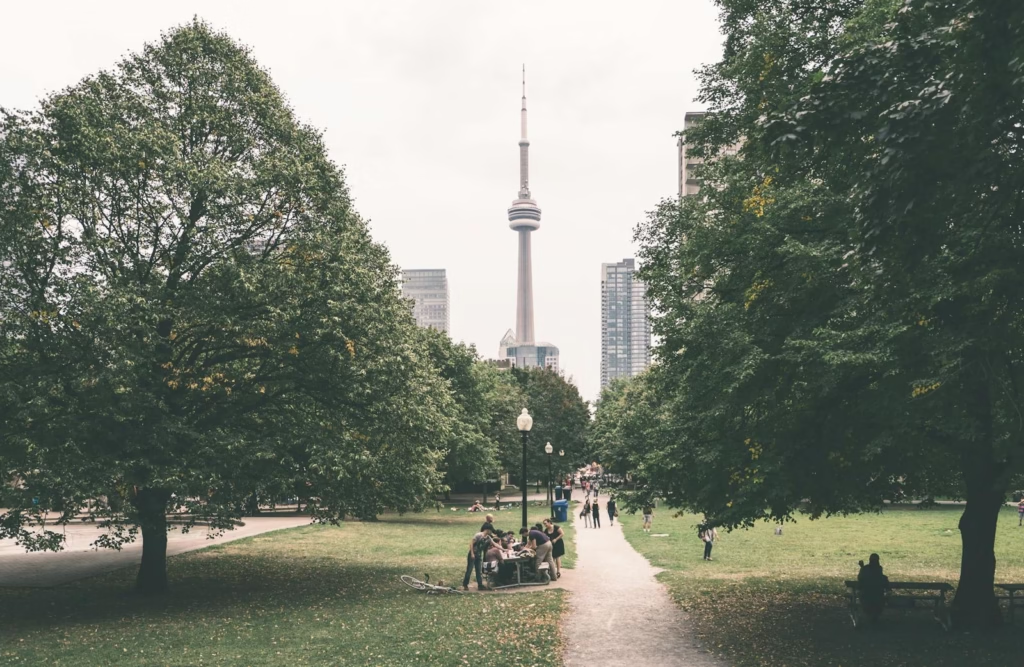
Anyone can add stock photos of gay travelers to their social feed or turn their logo rainbow during June, but LGBTQ+ people travel every month of the year! When I’m not staying at a major international hotel that’s LGBTQ-friendly—and my current favorite is IHG—I double-check for these accreditations that let me know I can book with peace of mind.
Want a checklist that you can use to research whether any hotel is LGBTQ-friendly? I made one, and you can grab that here.
